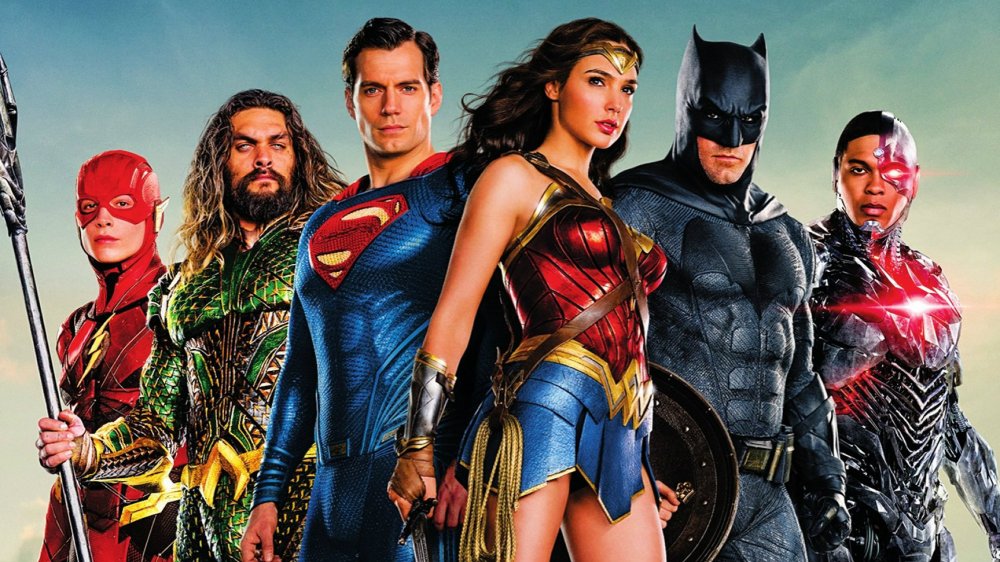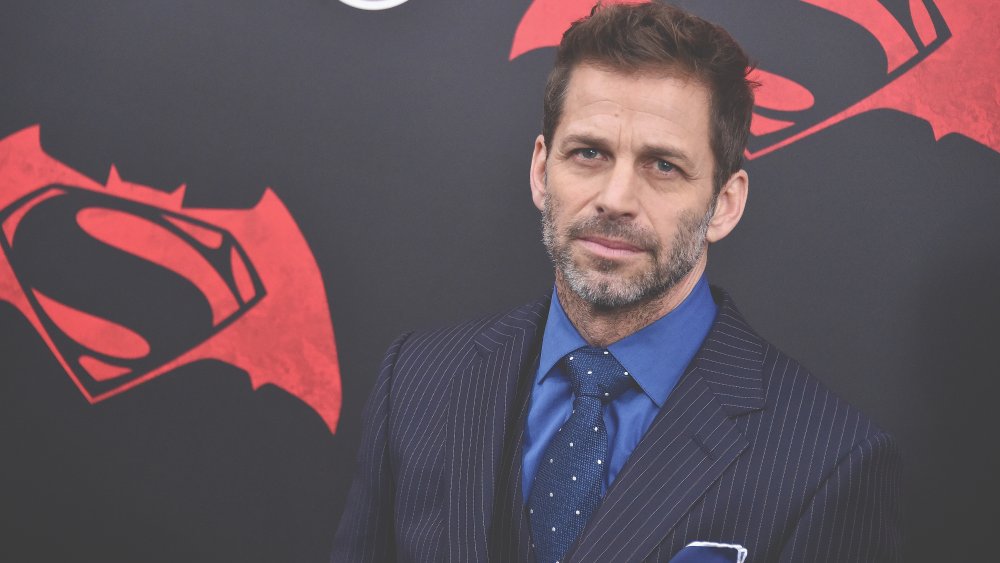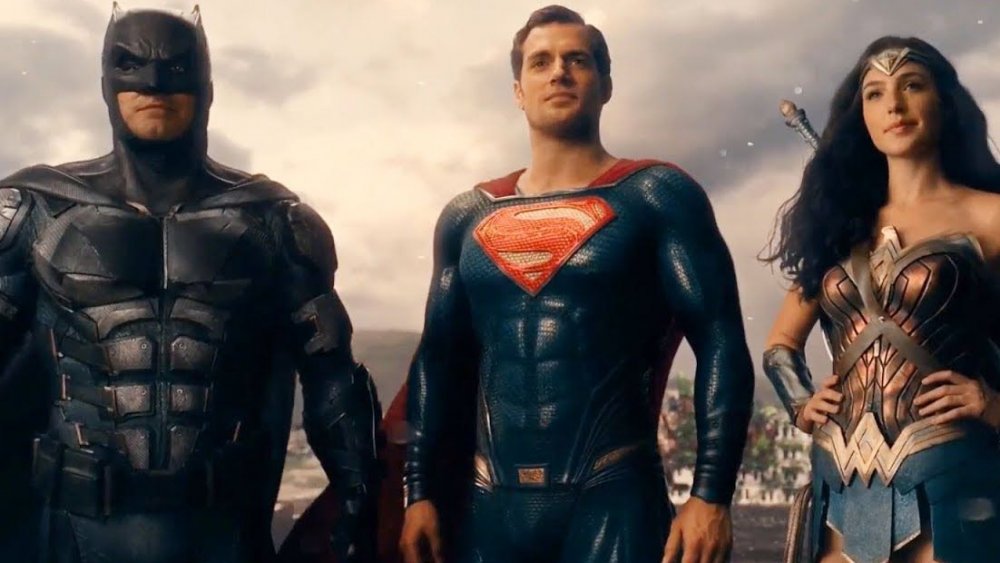Why The Snyder Cut Will Be Good For Hollywood, And Why It Won't
After years of hemming and hawing, Warner Bros. has apparently succumbed to fan demand and agreed to commission the long-awaited Snyder Cut of the 2017 film Justice League. Is everyone happy now?
Unlike the Marvel Cinematic Universe's Infinity Saga, which reached an epic conclusion with 2019's Avengers: Endgame, the road to the DC Extended Universe's Justice League has largely been defined by a lot of sour back-and-forth among fans, directors, and studio executives, seemingly destined for an ambiguous ending that satisfied exactly no one. First, original Justice League director Zack Snyder had to leave the project in the middle of production to address a family tragedy. In response, Warner Bros. brought in Avengers alum Joss Whedon to finish the job. Whedon took a pretty heavy hand with Snyder's material, remaking the film in his own image. The resulting final product, which hit theaters back in 2017, left fans and critics pretty underwhelmed.
Since then, Snyder has confirmed that the Justice League that was released bore little resemblance to the film he originally planned to make, and started hinting at the potential existence of a "Snyder Cut" that better represented his original vision. The fans began demanding access to this theoretical version, and the studio rebuffed them. Earlier this year, Snyder appeared to feed the fan outrage by suggesting that he originally mapped out a vision for five Justice League films. In response, the fanbase's demands escalated. Now, faced with an industry-wide shutdown and a new streaming platform to promote in HBO Max, Warner Bros. has agreed to let Snyder bring some semblance of his vision to the public.
While hopeful fans may be excited by the win, Warner's decision is almost certainly a mixed bag. Here's the good, the bad, and the ugly.
The Snyder Cut: The Good
While the production shutdown has left viewers in the lurch with some of the year's most anticipated content delayed, people who make a living in the entertainment industry have been especially hard hit. For every multi-millionaire actor or director with a big enough nest egg to weather the storm, there are hundreds of technicians, specialists, and administrative staff who really can't afford to miss a paycheck. No production activity means no work for them.
Big studios like Warner have been struggling to find ways to let people work remotely on projects, even though many production tasks simply cannot be accomplished via Zoom. This serves the dual purpose of keeping people on the payroll and keeping the content flowing, albeit at a much slower pace. The completion of the Snyder Cut is likely to help in the short term.
According to The Hollywood Reporter, the Snyder Cut that fans have been clamoring for doesn't even really exist — at least not in a form that can be released. What Warner has is an unfinished movie with missing scenes and no completed post-production. That means the studio gets to send some production folks back to work to get the new Justice League up-to-snuff.
In a very concrete way, this is a good thing. The Snyder Cut may be the kind of project that can actually get done amidst the shutdown, and it's definitely putting some people back to work who sorely need it. That said, all the short term gain may ultimately result in quite a bit of long term pain.
The Snyder Cut: The Bad
For years, fans have been able to operate under the assumption that Snyder's original Justice League would have been vastly superior to the Snyder/Whedon chimera we got in 2017. The Snyder Cut has become so mythologized and idealized in the minds of fans that Snyder really has his work cut out for him living up to expectations. Lest we forget, all the new work going into this fresh cut of Justice League largely amounts to tinkering around the margins. Sure, talented visual effects personnel can accomplish a lot in virtual post, but for the most part, Snyder and his editors are going to have to settle for jury-rigging old scenes together with glue sticks and Scotch tape. The work Warner commissioned for the release of the Snyder Cut cannot — by necessity — include any actual reshoots.
Apparently, Snyder reached out to some of the cast in April to let them know that their services may be required. Although these entreaties have allegedly been warmly received, the most Snyder can possibly expect from these actors is a couple lines of dialogue that can be remotely recorded and inserted into the film.
Zack Snyder, talented though he may be, is more-or-less destined to fall short of the sky-high expectations that fans of the series have built up over years of anticipation. If Warner Bros. had decided to remake the entire film, handing Snyder complete creative control up to and including the nigh-unobtainable right of final cut, maybe then — and only then — could fans expect the kind of majestic reimagining they've been hoping for. Warner, of course, did not do that. The studio will never do that, and fans should start preparing themselves now for a potential disappointment.
Even if Snyder finds a way to pull this rabbit out of the pandemic hat, the ramifications of Warner's surrender are going to reverberate throughout the industry for years to come.
The Snyder Cut: The Ugly
We may be living under extraordinary circumstances, but Warner's decision to acquiesce on the Snyder Cut could set a dangerous precedent. A certain contingent of fans, having realized a great victory over one of the biggest studios in Hollywood (or so they might see it), are now going to feel entitled to satisfaction whenever they want to see a mediocre film remade. Snyder's vision was genuinely compromised by tragedy, yes, but good cinema is not made in committee with the viewing public. If viewers want to participate in the creative process, they should watch Black Mirror: Bandersnatch. We should all fear a reality where studios feel the need to develop, cut, release, and revise films at the explicit direction of fans.
Think we're just catastrophizing here? It's already happening. Just today, fresh off their perceived victory, some DCEU fans redoubled formal efforts to extract an "Ayer Cut" of 2016's Suicide Squad. This is why the State Department doesn't negotiate with terrorists. Warner may seem like the easiest mark right now, but they certainly won't be the only one to feel the pain from this decision. If the industry normalizes this behavior, then fans are going to start to feel entitled to participate in the production process via mob input. That doesn't seem like a healthy paradigm — either creatively or commercially. We're not trying to be all "won't someone please think of the executives" here, but we can't ignore the worrisome potential of movies getting made with too much concern for pleasing everyone, at the expense of a coherent product.
Maybe the Snyder Cut will be everything fans ever dreamed it would be. Maybe things will return to normal after the shutdown is lifted. Maybe this is just an aberration, and we should be grateful for the injection of work and content into these uncertain times. Maybe.
Then again, maybe not.



